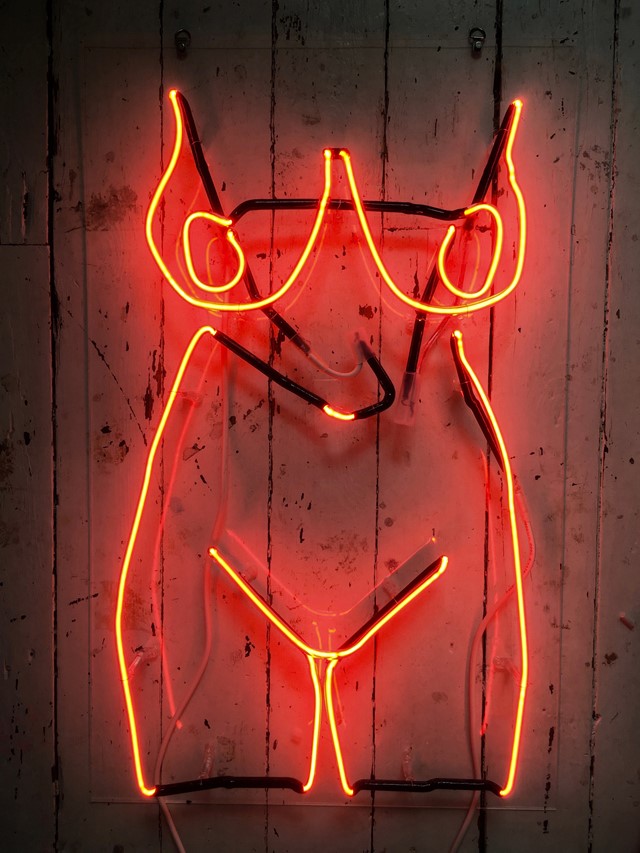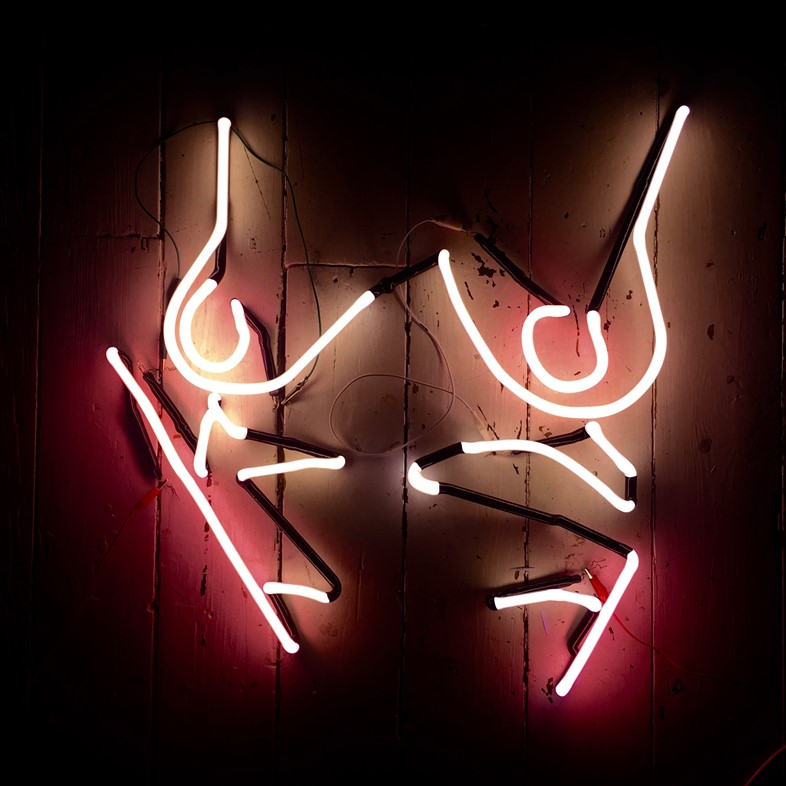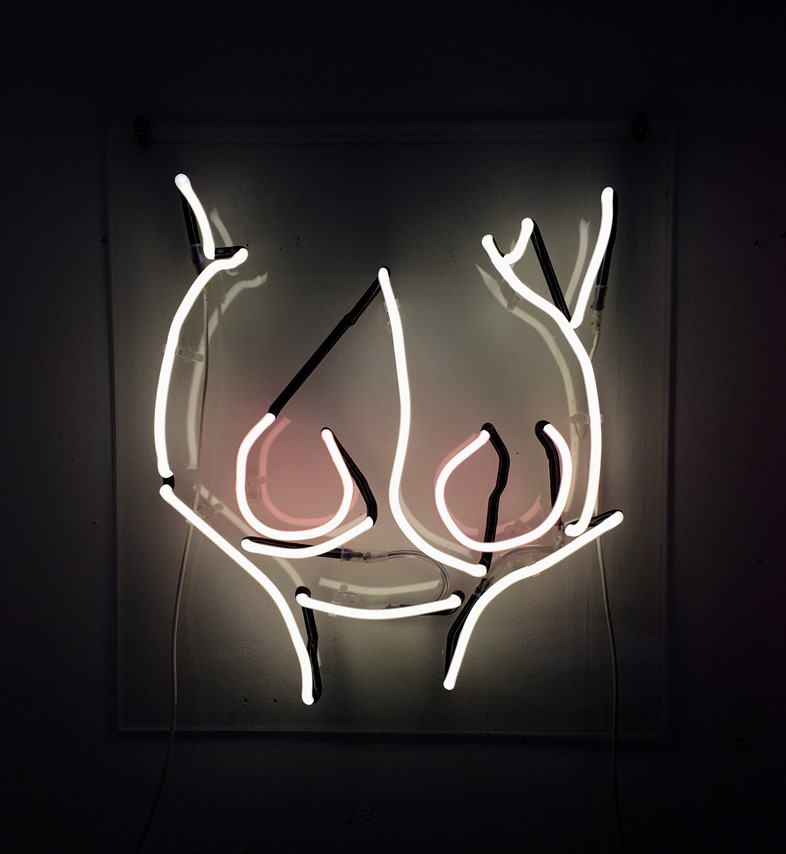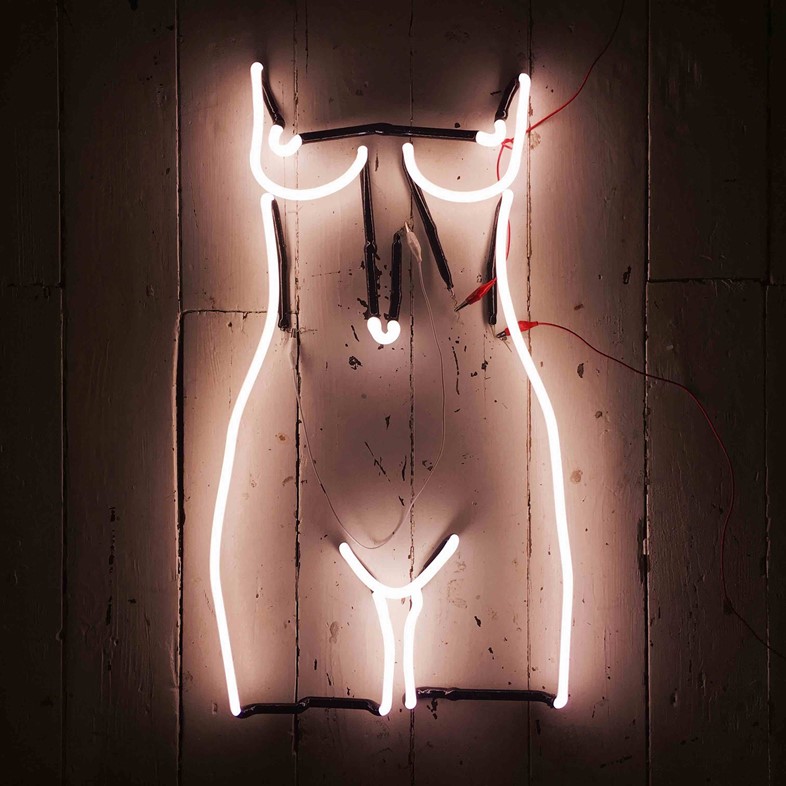Romily Alice's neon series Always Turned On challenges female identity in the ‘post-internet age’, she tells AnOther
It’s hard not to like artwork that consists mainly of massive neon naked women. But as with all art that seems relatively straightforward to describe, there’s rather more to them than that, as the creator of these aforementioned nudes, Romily Alice, explains.
The artist’s figurative neon works and installation pieces often examine issues around gender, power, and feminism’s place in the ‘post-internet age’. Concerns with traditional gender roles and how our digital and physical lives intersect directly feeds into Alice’s practice: she fabricates all her own neons, working in Leeds where she’s coming to the end of her degree course. Having lived in London all her life, she’s found the city’s affordability and its tight-knit, DIY creative community spirit have encouraged her work into previously unexplored and far larger-scale territories than would have been possible in the capital.

Her choice of a medium that can be difficult, time-consuming and occasionally frustrating to master is at once an expression of physicality in a digital era and a result of the fact she simply enjoys it. “I did a one day course and immediately felt like it was my material,” says Romily. “It’s a very cool hands-on process, and I’ve always liked the ‘making’ part of making art.”
The unmissable vibrancy of neon itself underline’s Alice’s aim to create work that asks questions around how we look at bodies, and are looked at. “I’m really interested in looking at women’s sexual agency – what is and isn’t allowed for women to talk about in terms of sexuality and sexual pleasure,” she says, “then comparing that to the portrayal of women’s sexuality and sexual pleasure for male consumption.”

The impact of the male gaze is examined alongside another pervasive gaze – that of social media, and in turn, the internalised ideals that women force upon themselves and their bodies. For the Neon Portraits project, she invited women to anonymously send in nude selfies for her to use as subjects, alongside an elective questionnaire. “It was quite heartbreaking to be honest. It’s an epidemic that young women are being made to feel bad about their bodies,” she says. “Part of the reason I was doing it was around awareness of the impossible beauty standards women are dealing with, and the effect that has on mental health and sexuality. Hearing about how those things affected people wasn’t surprising, but it was really upsetting. There were lots of positive responses too, though – people are learning to disregard the messages they’re being fed and make their own choices.”

Alice’s Always Turned On series portrays lone female subjects, drawn directly from either porn film stills or women found through Google. The ambiguity of the source material adds an extra layer to the ideas around objectifying: do we ever know where our digital likenesses will end up, or how they’ll be reproduced? The lovely thing about Alice’s work is that it looks relatively straightforward, but opens up so many lines of discussion.
The artist has thought a lot about her choice of subject, and whether depicting the female nude, taking images from pornography, or essentially “objectifying” the female body is “perpetuating this phenomena that I think is problematic,” as she puts it. “But the way I look at it is that hopefully I’m encouraging a conversation about those things. The idea of a naked woman alone has been co-opted by very male-focused pornographic images, but intrinsically there’s something amazing about a woman who’s nude pleasuring herself. That’s great, that’s brilliant, and people bring their own perspectives.”
Romily Alice’s work is on show at London’s Square Gallery as part of group show herOiNE until May 28, 2017. Free Range runs from June 15 until July 17 at Old Truman Brewery.
